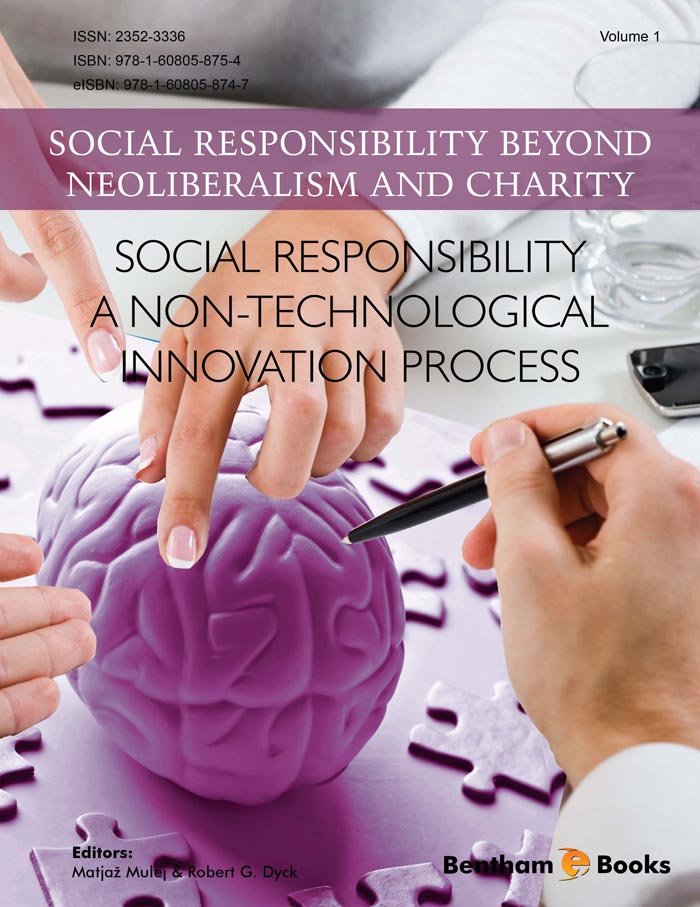Introduction
Current global economic crises call for social responsibility to replace neo-liberalistic, one-sided and short-term criteria causing monopolies of global enterprises. The triad ‘freedom, brotherhood, equality’ and ‘the invisible hand’ support the hypothesis of interdependence among humans. Humanity’s existence is endangered under the threat of global capitalism, unless the social responsibility’s concept ‘everyone’s social responsibility impacts everyone in society’ becomes the new socio-economic order, realized alongside concepts as ‘interdependence’ and ‘holism’ and using its principles of accountability, transparency, ethical behavior, respect for stakeholders, for the rule of law, for international norms and human rights.
Social Responsibility – A non-technological innovation process explores the realm of social responsibility in the context of innovation, business practice and economic crises. Readers can apply related principles to their business practices and enhance their business prospects in a modern environment facing the challenges of socio-economic crises.
This volume is intended for graduates and professionals working in government organizations and commercial enterprises, to learn basic concepts about social responsibility and introduce holistic management practices in their daily and professional lives.

